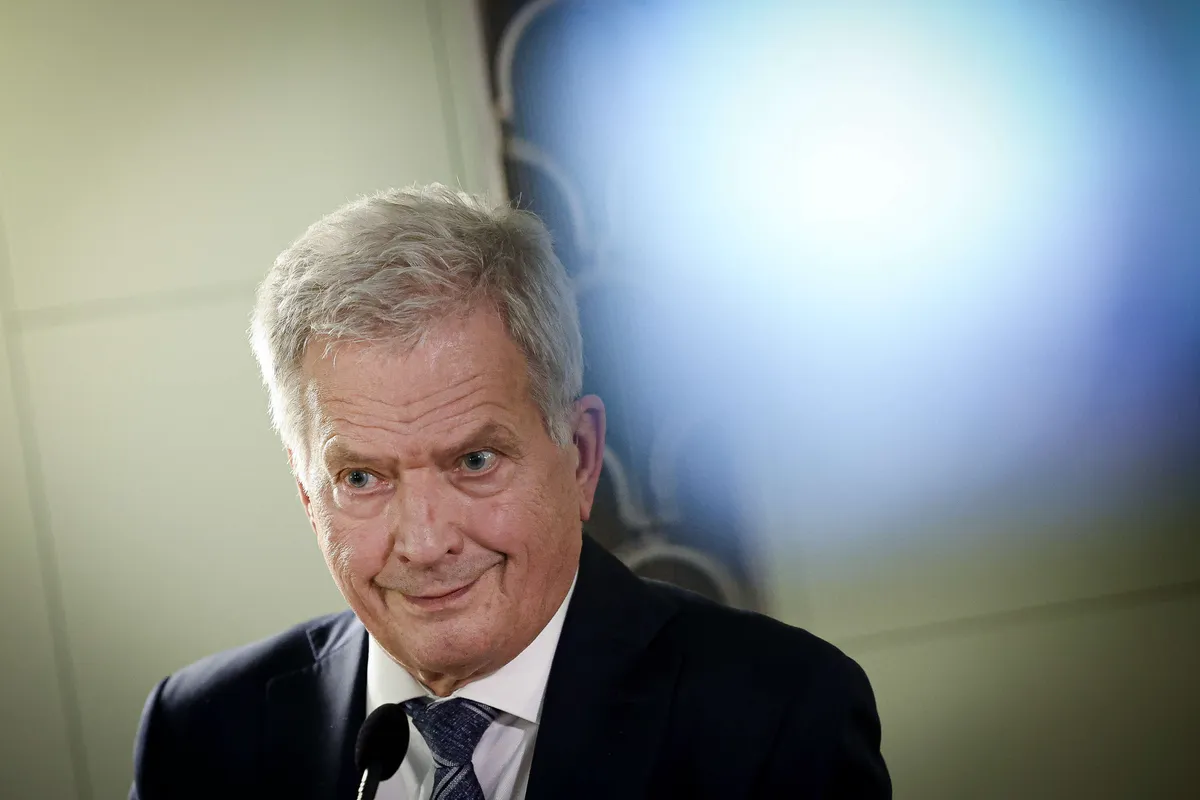Soviet leader Vladimir Lenin said at one time to try with a bayonet: “If it’s soft, push, and if it’s hard, dodge”.
President Sauli Niinistö wakes up the EU in its security report published on Wednesday with a harsh bayonet comparison.
Chairman of the Commission Ursula von der Leyenille the main message of the handed over 165-page report is that the EU should wake up, recognize its own weaknesses and take the necessary measures together.
According to Niinistö, they must be done so that the EU is prepared for even the worst scenarios, and citizens are safe in “a more dangerous world than before”, as stated in the report.
Nine points
in dealing with the EU’s crisis preparedness Safer Together, Strengthening Europe´s Civilian and Military Preparedness and Readiness in the report Using nine themes, Niinistö shares his views on how the EU needs to strengthen its civil and defense preparedness.
According to Niinistö, the EU must first of all recognize its own weaknesses and then start to prepare for future threats with determination.
Niinistö describes that the threat posed by Russia, for example, is now at the highest level since the Cold War. According to the report, the EU must also be better prepared for crises caused by climate change than at present.
The second point in the Niinistö report states that the EU must be able to function effectively in all situations. This also includes responding to a military threat. The report recommends further strengthening the cooperation between NATO and the EU.
Thirdly, in his report, Niinistö urges the EU to establish a joint EU crisis center whose task is to update situational information, build a situational picture and enable effective cross-sectoral action. The EU must also enhance mutual information sharing and training for crisis situations.
As the fourth point in the report, the strengthening of citizens’ psychological resilience to crisis is raised. This theme also includes improving households’ crisis preparedness and developing communication.
As the fifth point in the report, the development of cooperation between the private and public sectors is raised, so that the whole EU would be stronger in crisis situations. This theme includes, among other things, the creation of the EU’s common safety stock.
Sixth, Niinistö proposes strengthening the EU’s intelligence activities, which would take place gradually. However, the goal should be full-scale EU intelligence cooperation. According to the president, better intelligence cooperation than at present can be used to defeat hostile actors and respond to hybrid attacks carried out by, for example, Russia. According to Niinistö, hostile actors can be combated by making their operations in the EU area as difficult as possible and by punishing them.
In the seventh point, the report urges the EU to increase Europe’s defense capabilities, for example by identifying the weaknesses of the various member states and making plans to obtain the necessary defense capabilities. The internal market related to the EU’s defense must also be strengthened.
According to the report, the defense capacity in the Union must be strengthened in the coming years to also support Ukraine.
The eighth point in the Niinistö report calls for using EU diplomacy and partnerships to combat crises that occur across national borders and to strengthen resilience.
As the ninth point in his report, Niinistö presents harnessing the economy and a new investment framework to strengthen the EU’s preparedness.
According to the President, investing in the EU’s common security is one of the Union’s most important tasks in an era of risks and uncertainty.
At the press conference he held in Brussels on Wednesday, Niinistö said that he wants to send a message with his report to citizens, the EU’s partners and enemies that the EU is prepared.
“You cannot beat us because we are prepared,” Niinistö said.
Report available
President of the EU Commission Ursula von der Leyen ordered a report from President Niinistö last March.
The recommendations of the Niinistö report, published on Wednesday, directly affect the work of the new commission, because in the coming term, security policy will be emphasized more than before in all policy blocks.
